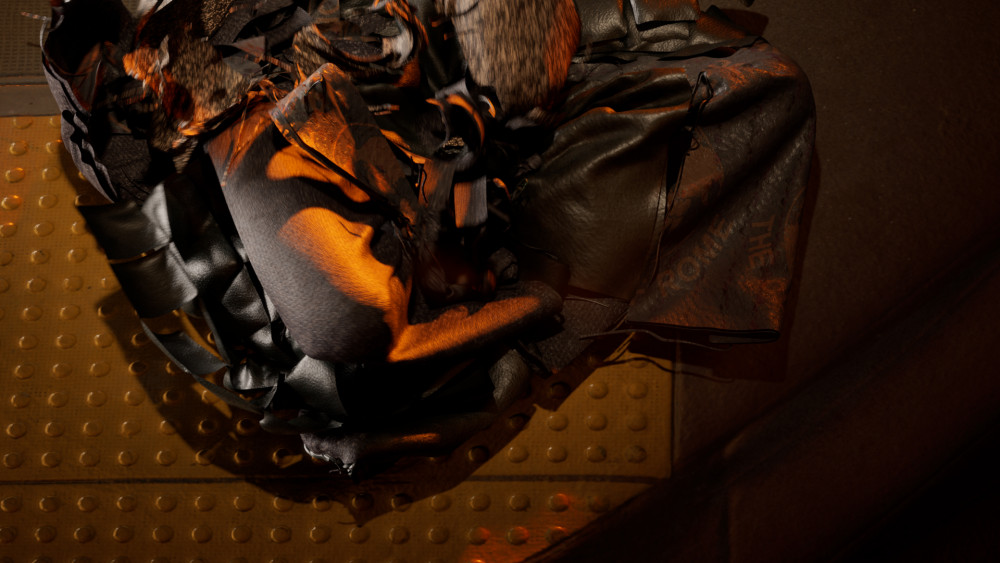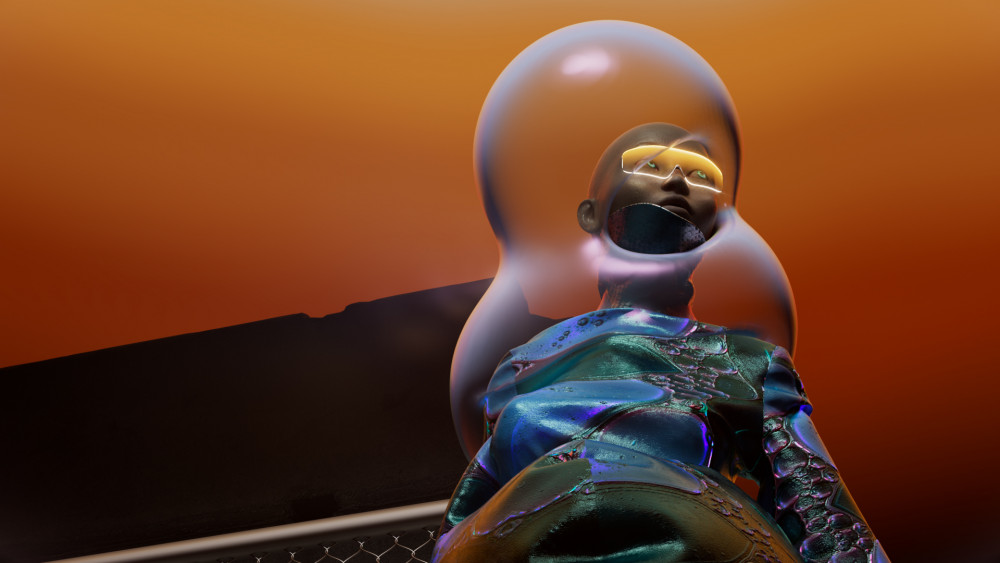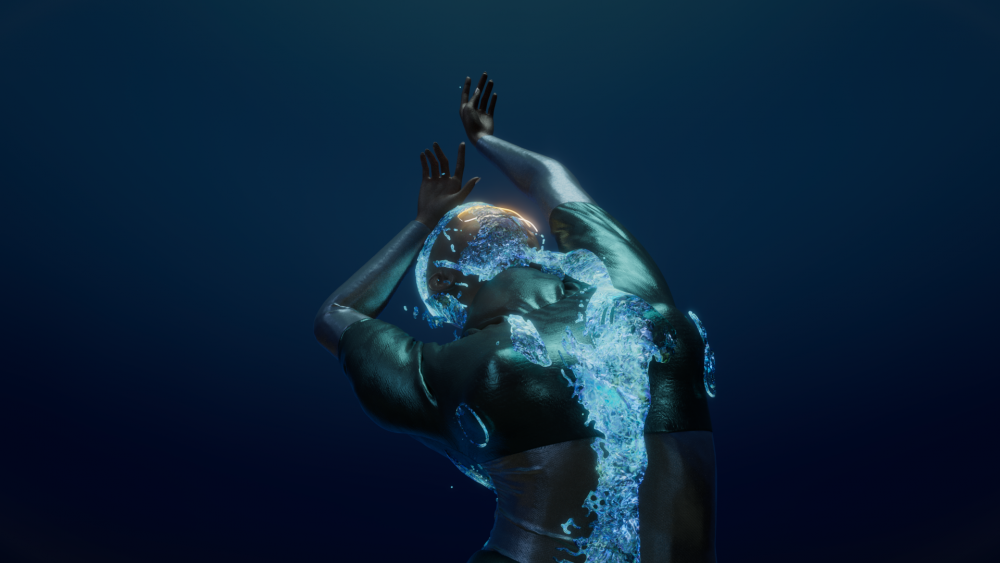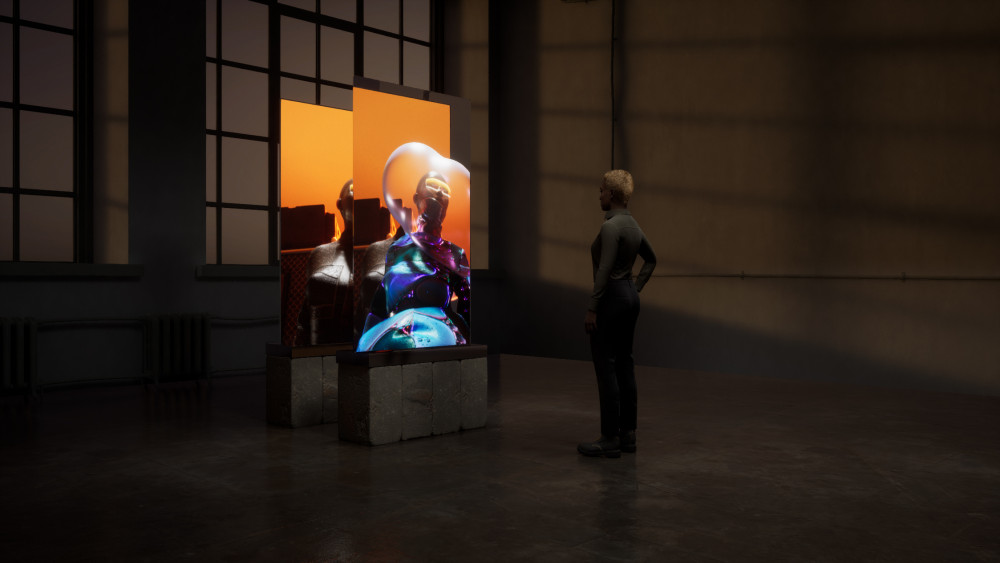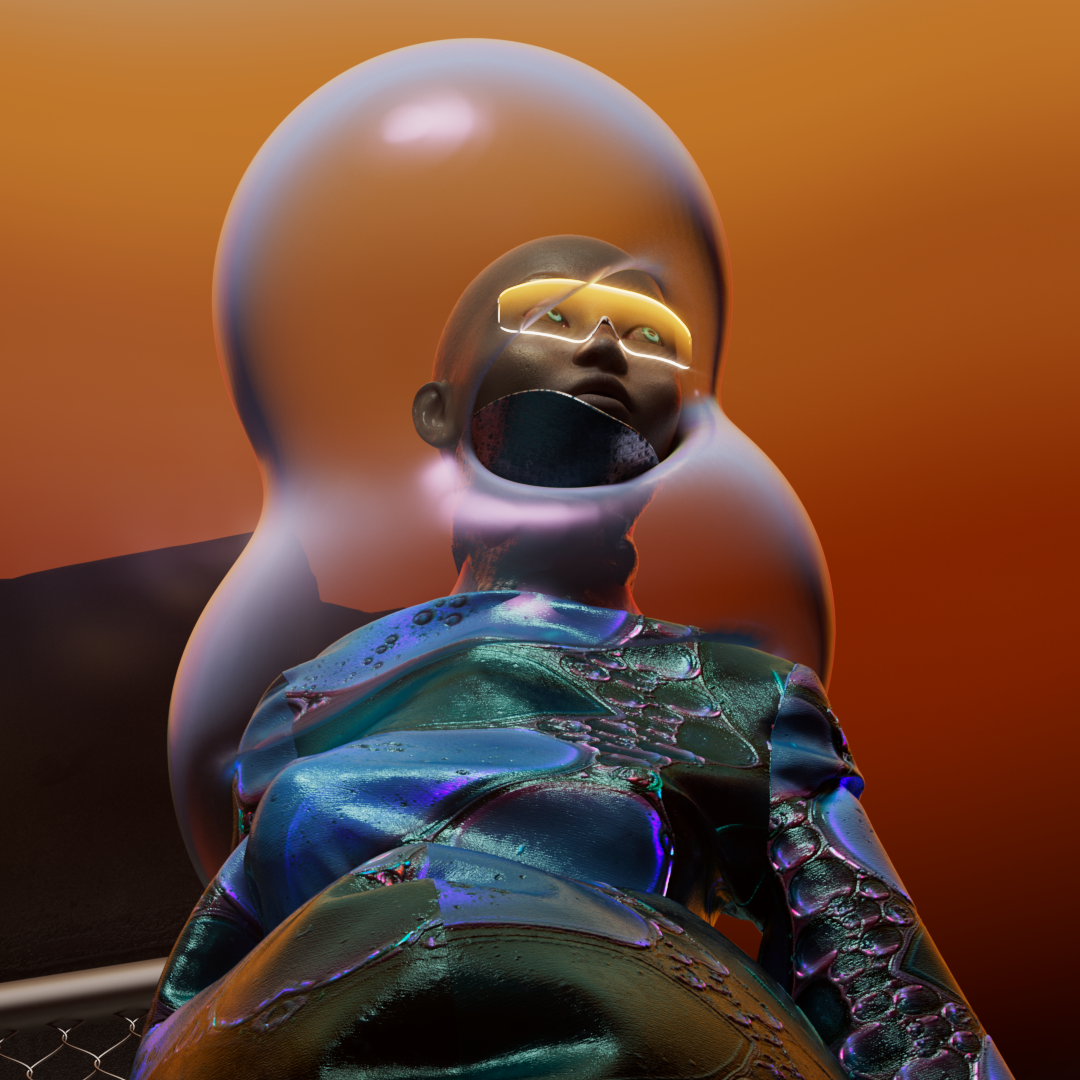Alexander Hahn
Alexander Hahn is a Berlin based 3D designer, that is currently studying in the of the new media class at the University of Arts Berlin. His technical expertise is based on his experience in VR and his focus on general real-time, which he applies in realizing 3D motion design and real-time projects. Equipped with a profound background in communication design from his studies in Augsburg (Germany) and Falmouth (UK) and his previous practical experiences in Munich and Berlin, he turns ideas into meaningful visuals.
Alexander Hahn — Panta Rhei - The Legacy of Growth
Legacy — Winter 2021
Panta Rhei is a speculative digital fashion collection, that people can experience through Augmented Reality glasses. Its name is refering to Heraklit's concept of a world that is constantly in a state of flow. Just like water changes its visual appearance depending on its physical circumstances also the Panta Rhei collection adapts to the current situation of its wearer. So on a public street, the digital cloth might look rather reserved like a water droplet. At work it would wave energetic, but serious. At a party, it would express the wearers' emotions and body data in elegant motion, that is referring to the growth of ice crystals.
In contrast to the trendy expression of the digital layer, the physical outfit is a timeless and sustainably produced piece, that is stitched together out of recycled fashion pieces from the past. Every single clothing has a different and individual pattern of seams that can be used just like a QR code for the identification of a digital fashion ID and also infrared based motion tracking.
The concept of digital fashion and virtual consumerism is reacting to a future world, that is hit hard by the consequences of resource scarcity and the need of reducing CO2 emissions. It is trying to make the impossible true: keeping the social and economic advantages of a growing economy but without destroying the planet. This happens by adding to the traditional resources of raw materials and energy a new one: data, that is produced with renewable energies. Through lightweight and realistically rendering Augmented Reality glasses, that data can make virtual products experiencable and perceived as so real, that less physical decorative products have to be produced and shipped. Therefor a lot of precious raw materials and CO2 emissions could be saved.
Technical approach: Clo3D, Houdini, Substance Designer, Redshift, Unreal Engine 5
Research, Concept and Design by Alexander Hahn
Sound by Dennis Scheiba
